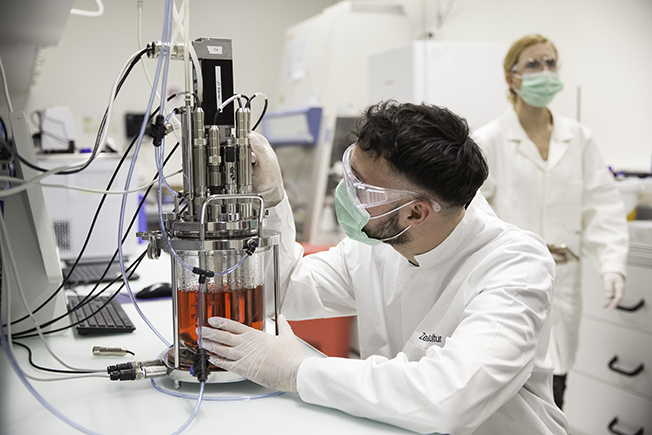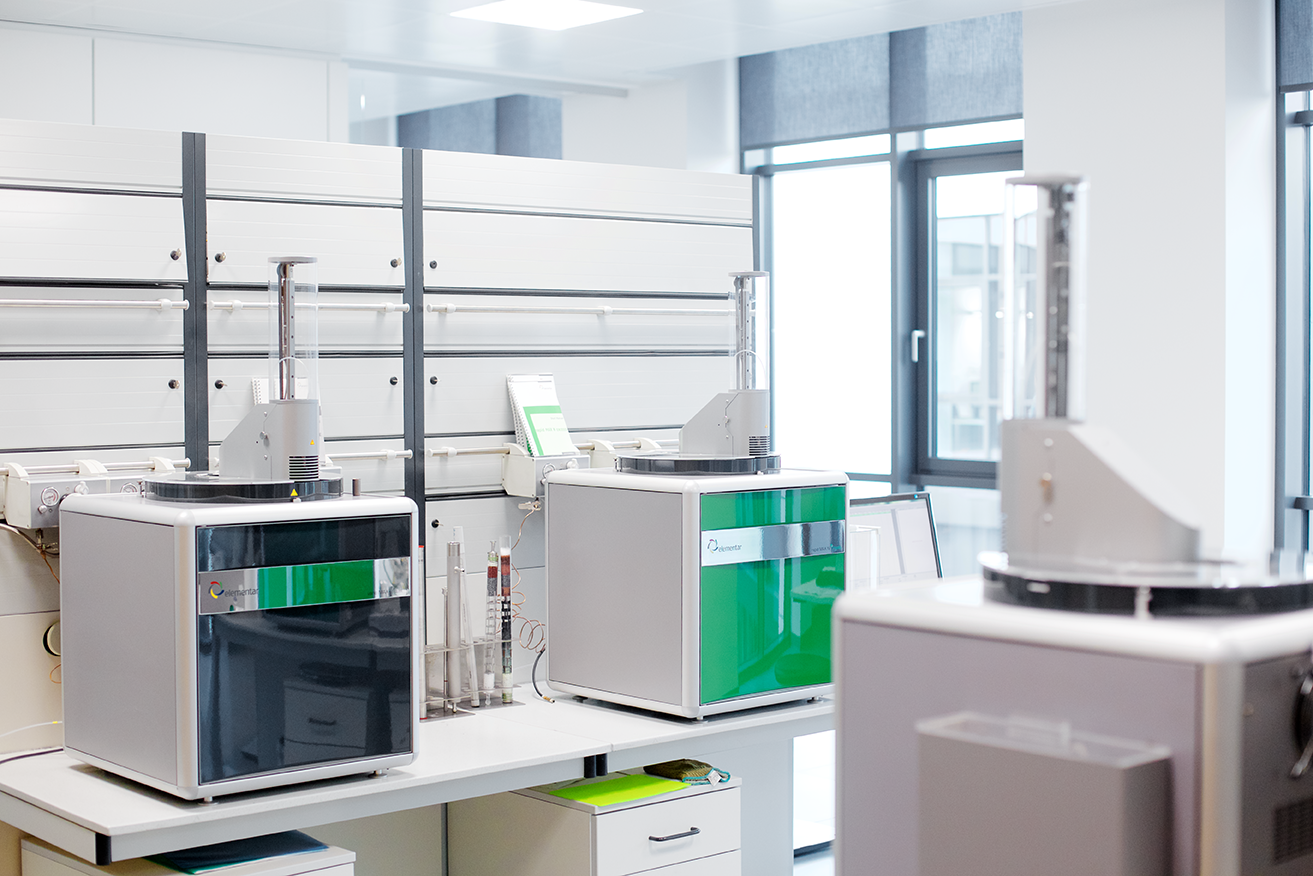

Efficiency meets innovation: How ENOUGH’S Abunda mycoprotein is reshaping meat and dairy alternatives
Michael Kilkie & Jim Laird reveal the role that ENOUGH’s mycoprotein product can play in the future of sustainable food systems
Jim Laird, CEO of Glasgow, Scotland-headquartered ENOUGH, has a clear and bold vision of how he wants his mycoprotein ingredient firm to progress – coupled with a pragmatic approach to what’s possible, achievable and desirable.
“In the global protein market, ENOUGH and the full range of all plant-based options currently only account for a tiny share, but we can achieve vast scale and support the need for a protein transition by collaborating with all parts of the value chain and food industry,” he states. “Early on, we defined our mission as ‘to make protein sustainable’, which is likely a massively ambitious goal, but equally a very important one. And we firmly believe that a transition will happen in the protein market.”

Laird recalls that when he and his Co-Founders – Craig Johnston and David Ritchie – set up ENOUGH, they regarded their startup as a technology company that would license to partners. “But 10 years later, having taken on board a few obstacles such as global pandemics and wars, our plans evolved and we have now built our first factory, which can produce five to six cows’ worth of protein every hour, and from where we are starting our journey to scale.”
That protein is ‘Abunda’, a mycoprotein ingredient that Laird describes as looking a little like chicken mince. “Growing protein using small organisms is much more efficient than the larger alternative,” he says, explaining the reasoning behind his firm’s microorganism-based approach. “The pig is more efficient than the cow, and the chicken more efficient than the pig. Microorganisms including yeasts and fungi are again more efficient than any animal options, and the reason we chose and grow Abunda mycoprotein is because, as an ingredient, it enables the creation of meat and dairy alternatives that taste as good as the animal alternative but do so using considerably fewer resources.”

Fantastic fermentation
So, how exactly is Abunda produced using such minimal resources? “Via our fermentation process we grow protein that is five to 10 times more efficient than the traditional protein production methods. That applies to land, water and energy use,” answers Laird. But, he notes, it’s important to point out that this same advantage is true of almost all non-animal protein options – both plant-based and fermentation, therefore ENOUGH is not competing solely on that front. Instead, Laird says, “The reason we celebrate Abunda is because of its versatility in product application. ENOUGH is a B2B business but working with lead customers, our development team has shown applications in both meat and dairy alternatives that taste as good as the animal-grown alternative.”
The tastemakers
Laird’s colleague, Michael Kilkie, Head of Culinary, is a key part of that development team. Kilkie reports that ENOUGH is working closely with potential customers, collaborators and partners across many territories, developing varied products. “This process allows our R&D/development team to stay on top of and understand current and future trends, providing knowledge for future opportunities and strategies.”
Kilkie describes Abunda as “a natural choice” for customers to make delicious, sustainable foods. “The inherent benefits of fungi and biomass fermentation give it some attributes that our customers appreciate,” he says. “Nutritionally, it is high in protein and fiber, and low in saturated fat. It contains all nine essential amino acids, making it a complete protein comparable to animal-based sources. It is free from cholesterol and has a low glycaemic index. It also offers culinary benefits, delivering a naturally fibrous texture that mimics the mouthfeel of meat, making it an excellent substitute in a wide range of plant-based dishes. Its neutral taste also allows it to be used in sweet and savory recipes.”
Being a chef, Kilkie understands that taste and performance are critical for the next generation of plant-based proteins, and he reports that ENOUGH has a laser focus on enabling genuinely competitive solutions. “We work closely with potential customers from initial sampling of Abunda right through to presentations and hands-on technical workshops to help accelerate learning and support development of high-quality, shelf-ready products. Our chefs work with customers to offer recipe development and application support. We also work with early-stage vegan/vegetarian brands, sometimes where we share an investor, e.g. with Juicy Marbles and Mosa Meat.”
Partnerships such as those detailed above are a huge part of the company’s business plan and Kilkie says the firm has selected a range of prospects, “with whom we have aligned collaborative principles”. He adds, “We are moderately resourced but have big ambitions, so it is key that we optimize our efforts and focus proactively on those who will enable us to achieve our business vision.”

Supply and demand
Part of that vision involves successful scale at a fast enough pace to keep up with the enormous potential demand. Putting this into perspective, Laird comments, “If we believe the demand forecasts from the big banks and consultancies, there is a need to build a new facility the size of our current plant every three to four days. That’s a massive infrastructure challenge that needs policy input, financing, and industry collaboration.
“Our job is focus on that collaboration model – with a need to deliver on our part of the value chain,” Laird continues. “We like working with partners who have scale and who we get on with – which means we can find an efficient way of working together. Right now, we can sell more than we can make and could probably also sell out our capacity at a higher price, but our strategy and pricing position is focused on building high scale.”
ENOUGH’s modeling shows that if all went well with a product launch, one customer could absorb all of its current capacity – “and for that reason our job is to continue to add capacity”, Laird notes.

The recent opening of the firm’s large-scale production facility in the Netherlands will assist in this task. “With our first line operational, we produce 1.3 tons per hour, which equates at full production to 10,000 tons per year. Within the footprint in the Netherlands, we can double the capacity in the current building and plan to do that in the next 18 months. On the site there is scope to grow to 50,000-60,000 tons of capacity annually,” Laird reveals.
Beyond Europe, Laird says there are strong rationales to add capacity “in almost every region”, with North America, the Gulf region, and Asia, in particular, capturing his initial interest. “The factors that influence this are where the demand is, the cost of utilities, and where we see the biggest synergies and scope for collaborating,” he observes.
Ultimately, Laird concludes, ENOUGH’s goal is not to completely disrupt conventional proteins, but rather to play an enabling role in the protein transition by simply offering a product that makes delicious food. “The reality of the alternative protein market is that it’s still small,” he comments. “But it can grow very rapidly – and it will grow very rapidly if we give the consumer what they want.”
For more information visit www.enough-food.com
If you have any questions or would like to get in touch with us, please email info@futureofproteinproduction.com


%20ILVO%202.jpg)

.png)

